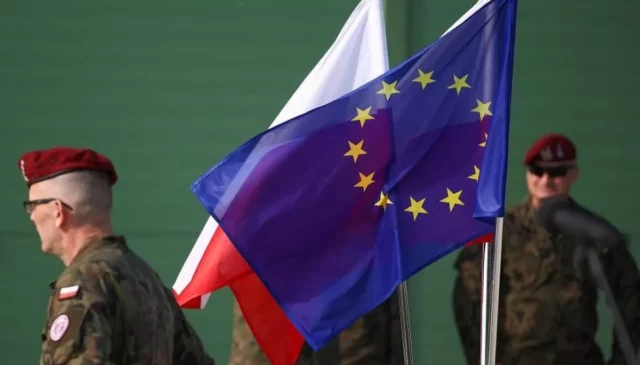**Strengthening Transatlantic Relations Amid Disinformation Threats**
As the political landscape in the United States heats up ahead of the elections, Poland has taken a proactive stance in addressing what many see as a looming crisis: the potential for Russian disinformation to infiltrate and influence American society. This initiative is not just about safeguarding electoral integrity; it transcends borders, calling for stronger ties within the European Union and across the Atlantic.
### Understanding the Current Landscape
A recent document prepared for a meeting of EU foreign ministers articulates the urgency of fortifying transatlantic communication. It states, «At this critical moment in history, it is extremely important to jointly strengthen transatlantic relations through strategic communications in the US regarding the EU.»
This assertion highlights a vital truth: misinformation, especially during election cycles, can have far-reaching consequences. For instance, recent studies have shown that nearly **70% of Americans** encounter misleading information on social media platforms during elections. If left unchallenged, this can skew public perception and impact voter behavior.
### The Need for Clear Communication
With the US presidential elections drawing near, the focus on countering Russian disinformation is more crucial than ever. The Polish government emphasizes the importance of two key measures:
— **Expanding the scope of exposure to Russian disinformation**: This involves identifying and debunking false narratives.
— **Launching informative campaigns**: These initiatives should clarify the current geopolitical landscape, highlighting the benefits of diplomacy, collective security, and the values of an open society.
A reminder of the historical achievements of transatlantic partnership is also essential, especially for the younger generation. For instance, the collaboration between the US and EU has fostered economic growth, innovation, and security advancements that have underscored the strength of these alliances.
### The Threat of Russian Interference
Poland has become a focal point in the struggle against Russian efforts to destabilize the region, particularly through its support for Ukraine. The document underscores a pressing concern: «We should expect even more attempts, as weakening support for Ukraine remains a priority for Russia.»
This isn’t just theoretical. Consider the example of the 2016 US elections, where Russian operatives were found to have used social media to sow discord and misinformation. The stakes are incredibly high, and nations like Poland recognize that proactive measures are essential to safeguard democratic processes.
### Combatting Disinformation Campaigns
The Polish report also sheds light on how Russian state media and affiliated platforms are manipulating narratives surrounding immigration and security in the US. Often, they distort the reality of immigration, painting an unfair picture of migrants by associating them with crime, despite statistics showing that **immigrants are less likely to commit crimes** than native-born citizens.
In a shocking recent event, Russian-affiliated hackers breached several Ukrainian Telegram channels, showcasing their capacity for disruption. This incident serves as a stark reminder of the vulnerabilities that digital platforms face against state-sponsored disinformation efforts.
### Conclusion
In conclusion, as we approach pivotal moments in global politics, Poland’s call for a united front against disinformation is not just sensible; it’s imperative. By fostering closer relations and enhancing strategic communications with the EU, the US can not only safeguard its electoral integrity but also reinforce the values that underpin a stable and democratic society.
Together, we must push back against disinformation, engage in meaningful dialogue, and remind ourselves that our partnerships across oceans have historically brought about progress. Only through vigilance and cooperation can we hope to secure a brighter future for generations to come.






